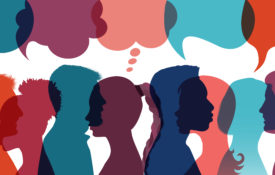-

Dogs Act Jealously Even When They Don’t See Their Rival
Researchers gauged the reactions of a group of dogs when their owners appeared to shower attention on a perceived rival.
-
You Won’t Remember the Pandemic the Way You Think You Will
... The pandemic has not been a single, traumatic “flashbulb” event like the assassination of John F. Kennedy, the fiery disintegration of the space shuttle Challenger, or 9/11. Instead, it’s a life period in which everybody’s memories will be embedded, more like the Great Depression or World War II, or My High-School Years or When I Was Married to Barbara. Starting in March 2020, hundreds of millions of Americans began forming their own impressions of it. As psychologists and anthropologists who study memory will tell you, we tend to lay out our anecdotes almost like short stories or screenplays to give our lives meaning; our plots (do they have silver linings?
-

National Institutes of Health Funding Opportunities to Address Health Disparities
NIH has released two funding opportunities focused on advancing health equity and addressing health disparities.
-

The Psychological Science of Racism: Expert Panel
Summary and video of APS Expert Panel on the Psychological Science of Racism.
-
Why Is It So Hard to Speak Up at Work?
... Psychological safety is the belief that you can speak up, take risks and put forward ideas, questions or challenges without facing ridicule or retaliation. Amy Edmondson, a professor at Harvard Business School, has been researching — and has popularized — the idea since it was first written about by the psychologist William Kahn in 1990. When employees feel safe, they trust that they can admit mistakes, seek feedback or even fail without dire consequences, Dr. Edmondson said.
-
Are We Heading for a Post-Pandemic ‘Roaring 2020s,’ With Parties and Excess?
This has been a year of extreme social deprivation. But the pandemic — like all pandemics before it — eventually will end. Then what? Will we easily transition from isolation back into the real world? For most of us, the answer probably is yes, although it may take time to adapt, according to social scientists who study human behavior. “Social skills are like a muscle,” says Richard Slatcher, a professor of psychology at the University of Georgia who studies the effects of relationships on health and well-being. “If we are out of practice, it will take a while to get back on the social bike, if you will, and ride it again. It has now become second nature to keep your guard up.

